After the incredible experiences we shared in Part One of our Brazil origin trip, Days 4 and 5 brought us deeper into the heart of coffee farming in Minas Gerais.
We visited three standout farms; Paraiso, Faxinal, and Palmital, each offering unique insight into the future of specialty coffee.
From ecological research and terrace innovation at Paraiso, to large-scale mechanical harvesting and varietal planning at Faxinal, to the deep-rooted legacy and worker-first ethos of Palmital, this leg of the journey was both inspiring and eye-opening.
What connected all of these places was a shared commitment to sustainability and resilience!
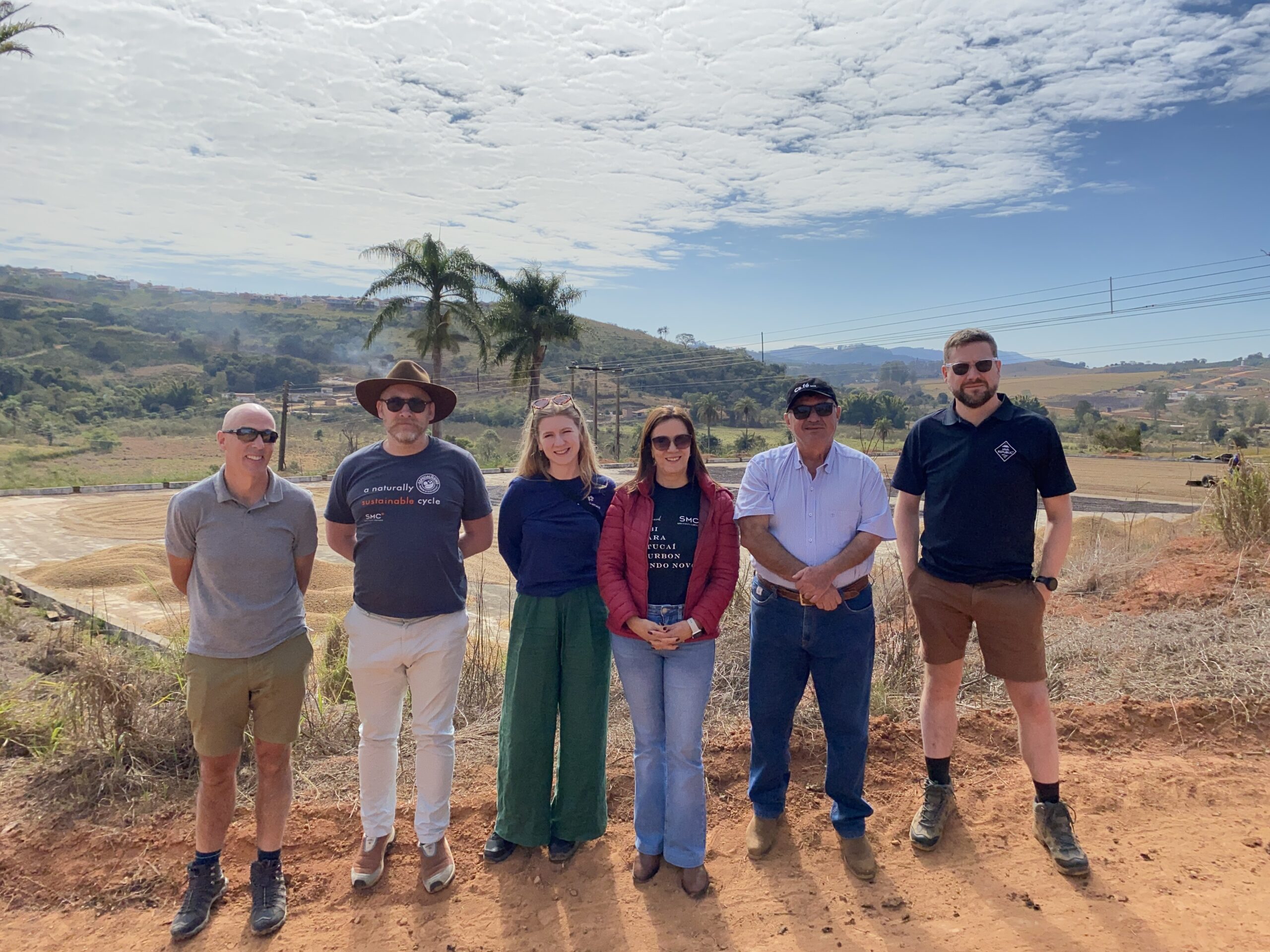
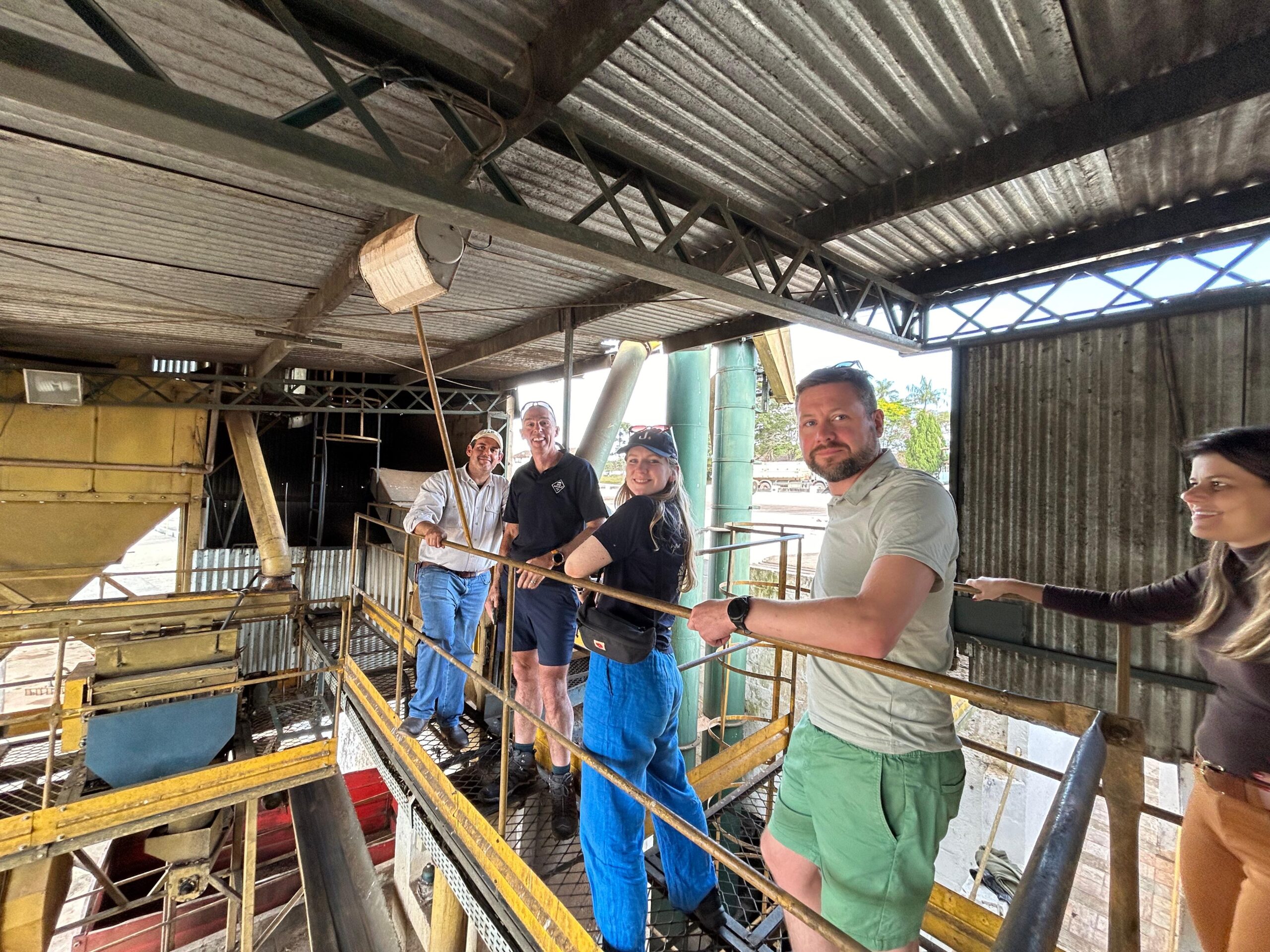
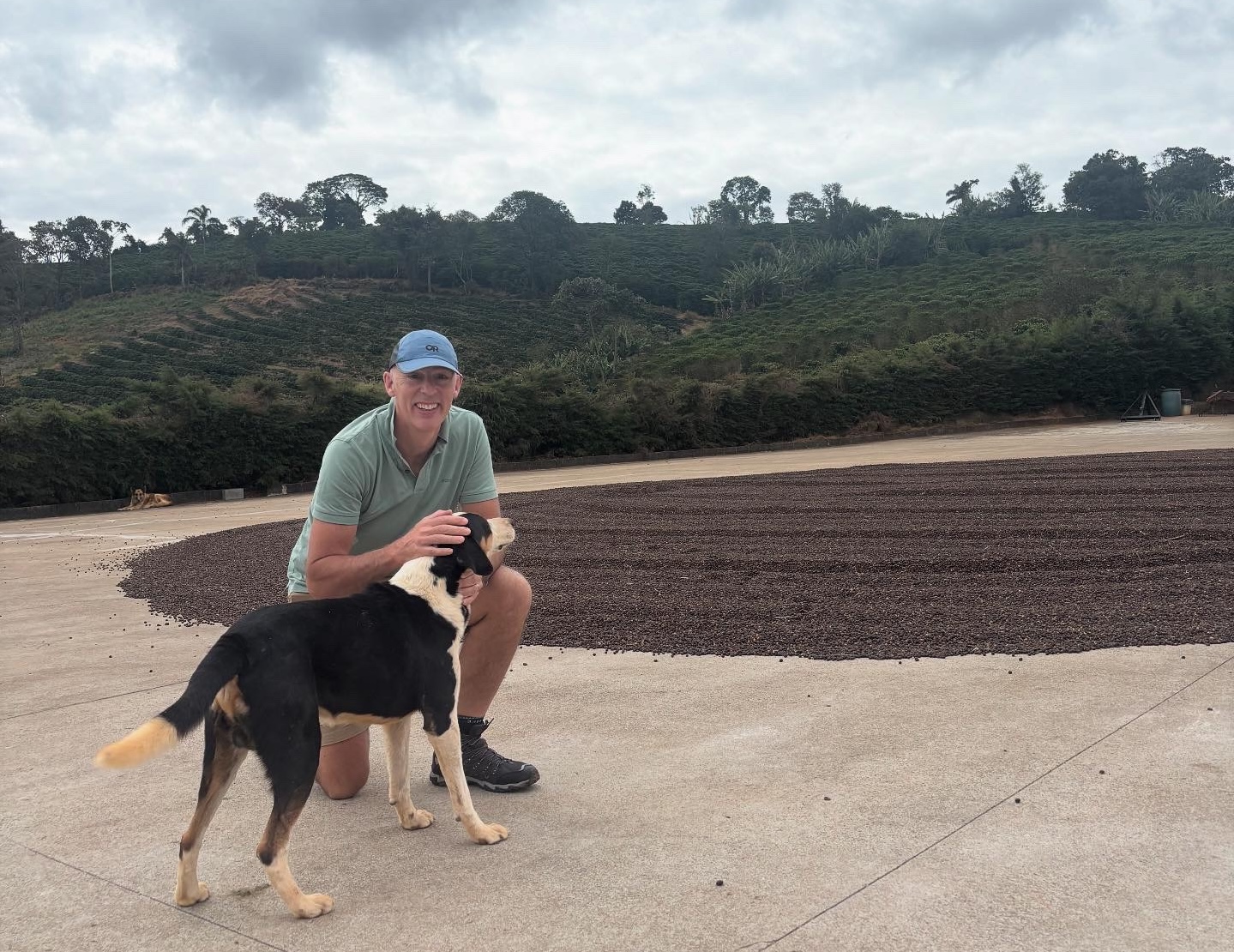
Day 4: Paraiso and Faxinal
First stop for the day was Paraiso.
Run by ecologist and avid youtuber Guy Carvalho, this farm has a 25-year relationship with SMC. We first were shown a newly purpose-built meeting center primarily for training and conferences with local producers. The CDC allows a great place to stay, but also a facility to receive others so they can do face to face meetings around nutrition, drones, irrigation, and much more.
The logo over the center entrance is that of a Suindara which is a native owl to the region. Guy has a keen interest in biodiversity across the farm using science-based methods to help boost yield and maintain the long-term ecological health of the farm. He is somewhat of an oracle when it comes to these things.
He is also a pioneer in terrace building, which allows for easier level footing to harvest the cherries. They did some terraces here before but not designed for machines. Now it is helpful in areas with more severe topography. Things like this help to attract more workers, which he brings in every year from Parana for the harvest, for more than 20 years and has them stay on his farm during this period. Fewer and fewer workers are available every year, however.
This was a really interesting and informative visit where we gained a real insight into the future of coffee growing and challenges that climate change is posing. After some lunch in Cabo Verde, we quickly moved to our next farm, Fazenda Faxinal.
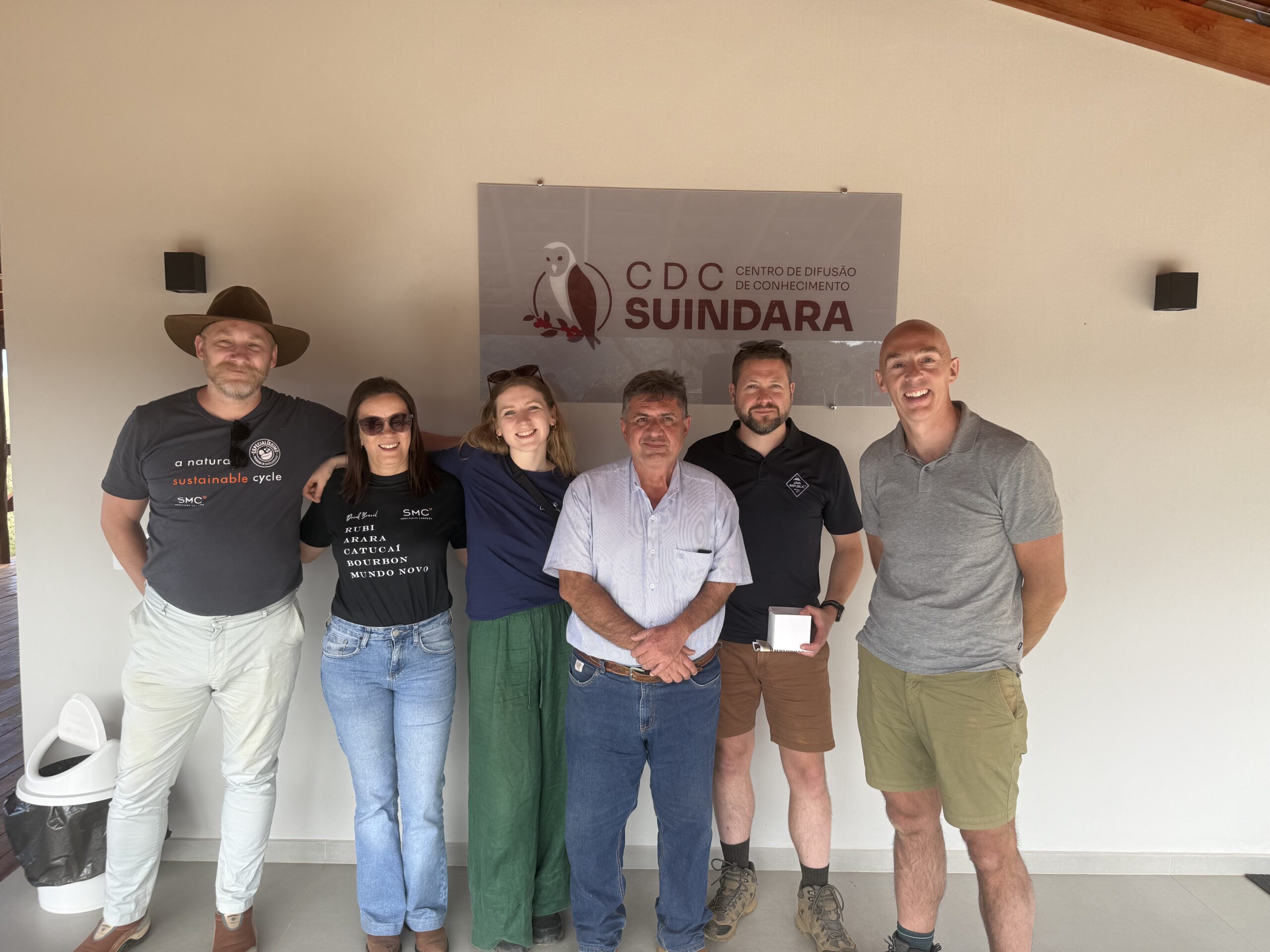
Fazenda Faxinal
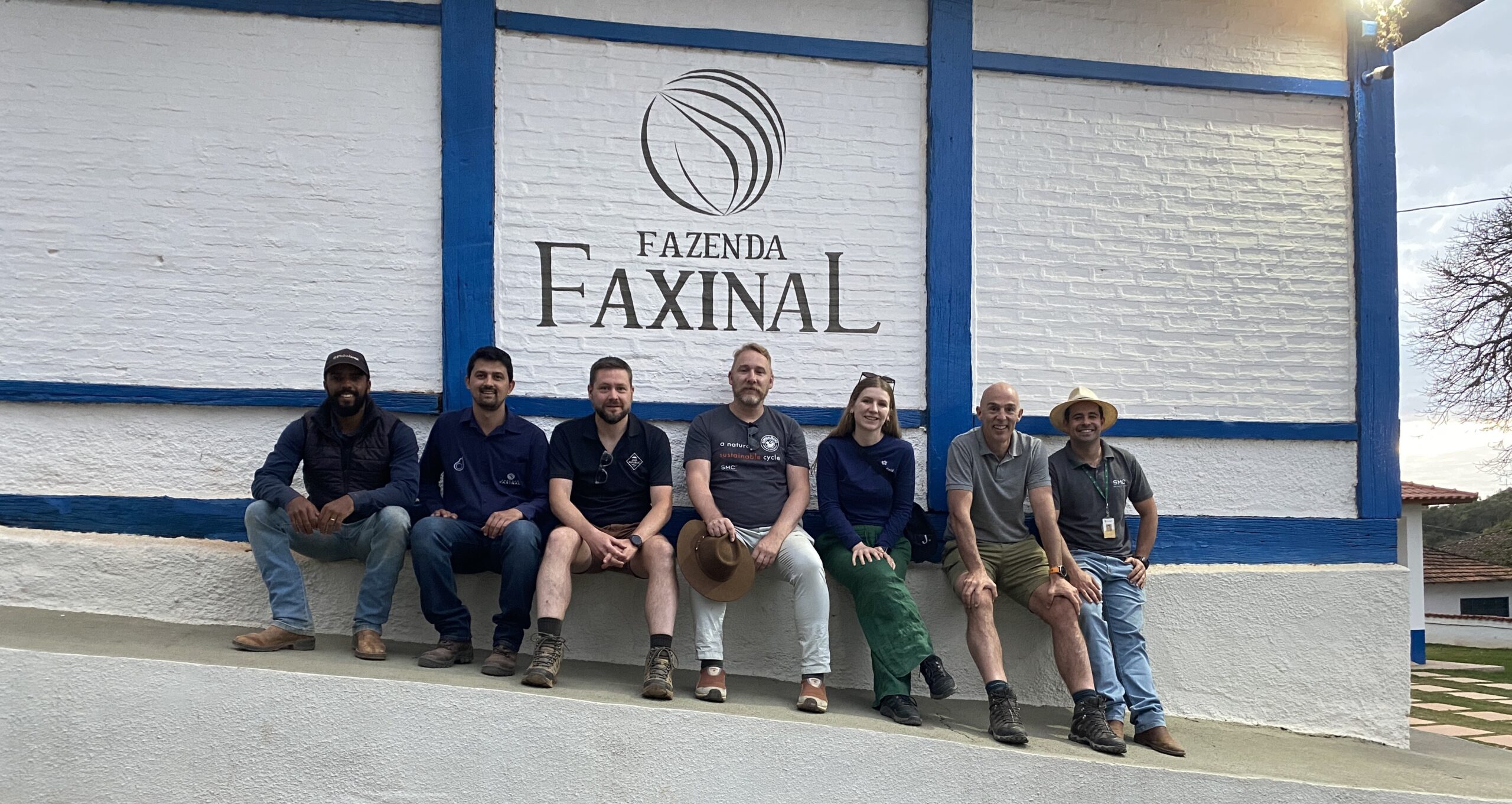
This huge 1000-hectare farm (300 hectares for coffee) was on another level in terms of scale and forward thinking.
Currently averaging 30 bags of beans per hectare, it took us until dark to see the full extent of this farm! What struck me most was that the topography of the land was more favourable to mechanical harvesting and the amount of young coffee trees planted over the last year or 2. In a couple more years, these fields will be producing massive amounts of specialty coffee.
The investment in the site was significant with a newly refurbished area for tasting and roasting, a modern spacious office, huge drying patios and mechanical dryers. This farm was growing, and growing fast!
Hernane Souza currently manages the farm and is heavily focused on the long-term sustainability of the native forests and planting of many different coffee varietals. Innovation, and planning at scale are the words that come to mind here. We took a spectacular drive through the entire farm, and I was blown away by the beauty of the landscape and the life within it. It almost felt a bit like a safari!
Day 5: Palmital
Our final day was wrapped up with a visit to the famous Palmital farms. Check out our highlights here.

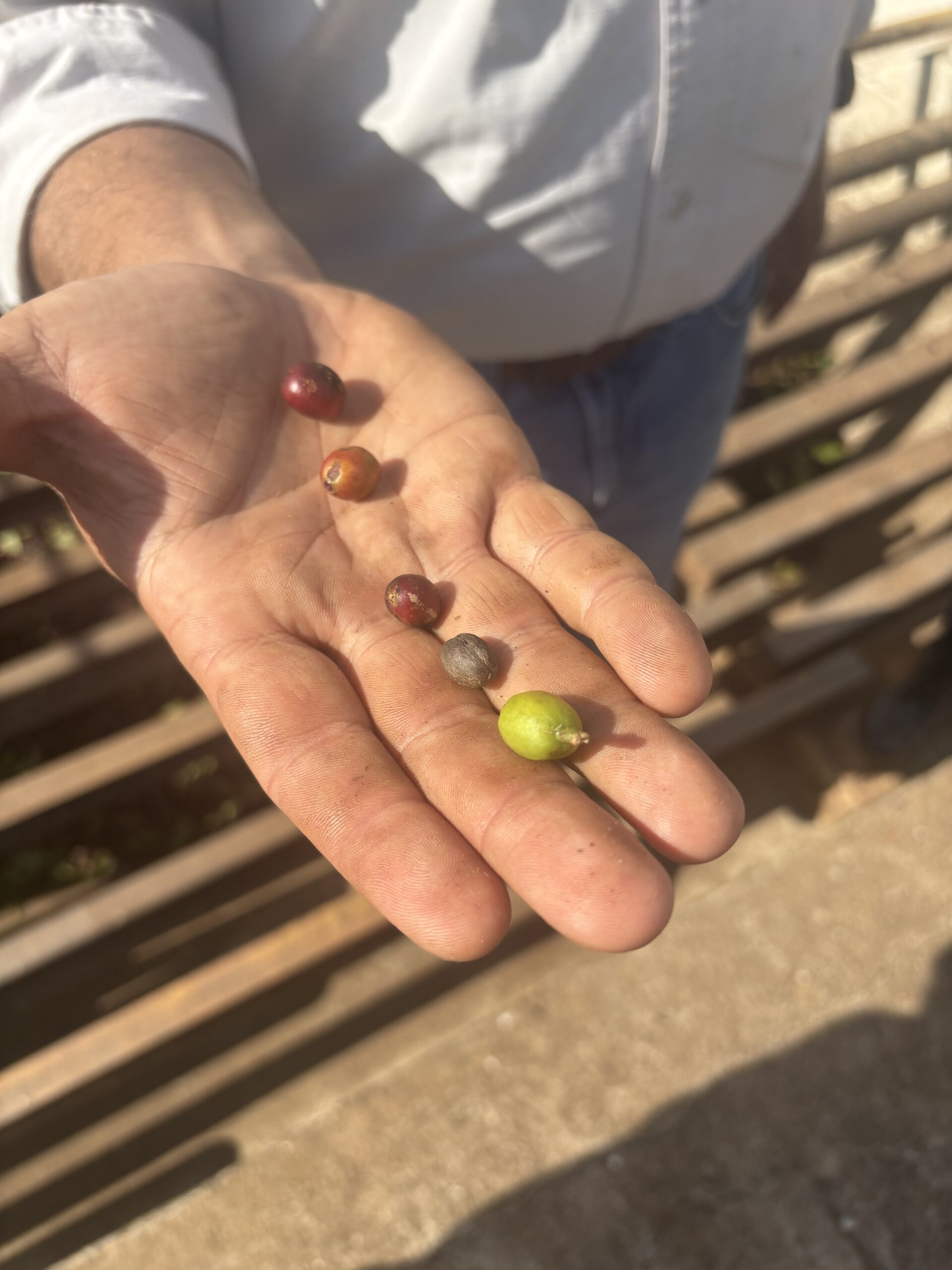

Comprising of 4 farms in total, we visited the 3 nearest the main house. Some farms are more favourable to mechanical harvesting, and others still rely on hand harvesting due to differences in topography. Workers come from the north of Mina every year; however fewer and fewer come each year, resulting in longer harvesting periods and more reliance on mechanical harvesting.
Employee welfare appears high on the agenda for Carlos Augusto, the estate owner since the 1970s. With planning starting in March, workers are paid well, housed with their medical and educational needs all taken care of during the months that they stay on the farm. The farm provides all the machinery and PPE in accordance with labour ministry regulations.
Augusto (son of Carlos Augusto) took us around the farm and showed us the different methods of harvesting up close. His wit, high level of English and his brilliant recollection of previous encounters with Java Republic employees made the trip very enjoyable, even sending his regards to each of them. His passion and work ethic were very apparent through the conversations we had.
Mechanical harvesting was not something we got to see up to this point so, to get this opportunity was pretty cool. We even got the climb on top of a mechanical harvester and see how this clever piece of kit strips the coffee tree of its cherries. It did appear to be more aggressive and cause more damage to the tree, however, Augusto assured us that these trees bounce back to full crop every 2 years. There is approximately 35% native forest across the 3 farms and the facilities are run on solar energy.
Once the tour was complete, Carlos Augusto and his family laid out yet another fabulous spread of food and desserts. His interest in Ireland and the climate was evident. It also gave us a good opportunity to ask questions about how he felt the industry has changed since he started many years ago, and what are the immediate challenges they face. Carlos Augusto is also the president of Cooxupé, having first started with Cooxupé over 45 years ago. His knowledge and expertise knew no bounds.
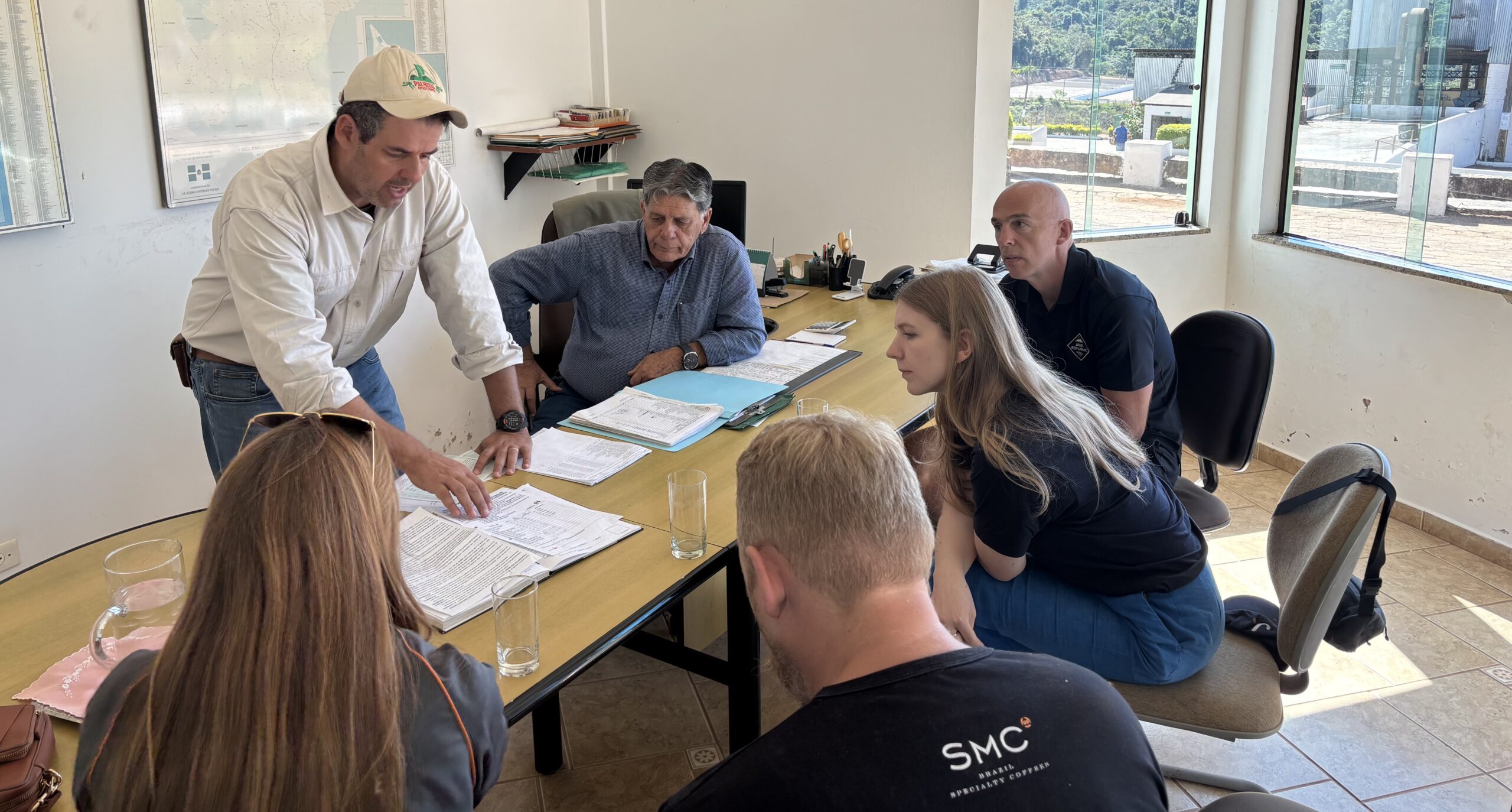
And that was that. We finished our day with a meal in Boutique de Carnes (best steak and beers in Gauxupe!) and prepared to travel back home the very next day.
A lot to ponder on a trip that I was very lucky to experience, and one I will never forget. I have been working in the coffee industry since 2007 and when you go away on a trip like this, to the heart of it all, it opens your eyes to what coffee is all about. Coffee is about people. Connecting people from the producers and the connections they build through the incredible support of the cooperatives like SMC and initiatives such as Donas do Café and the Especialíssimo program.
Connecting producers to producers, producers to Co-ops, Co-ops to distributors and roasters, and closing the loop by connecting roasters to producers. Building and maintaining these connections are key to the long-term sustainability of the industry and it means so much to the guys on the ground to meet the Java Republics of this world.
The industry has a lot to face, shortages in labour, decreased resistance to disease and drought, increase in global demand and the elephant in the room… climate change. All fueling the increasing volatility in the market. However, it’s the people I have faith in to navigate their way through the controllables. The expertise from Ucha, Carlos Augusto and Guy (to name just a few), supported by the great team in SMC and Cooxupé including Felipe and Maria, will help drive quality, sustainability and knowledge. This shared knowledge puts Brazilian natural specialty coffee in good standing for the world to enjoy.
To finish, an Obrigado! Obrigado to Hannah and Jamie, our partners in DRWakefield who made wonderful travel companions. Obrigado to the team in SMC, particularly Maria, Yana, Priscila and Felipe, who took the time out of their day to take us to meet with the producers and ensuring we were well fed! And an Obrigado to all the producers above who made us feel so welcome in their homes and took the time out of their busy day to show us their farms and the people that run them.
The next time you connect with your people over a cup of coffee, pause and think about the people who help bring it to you!
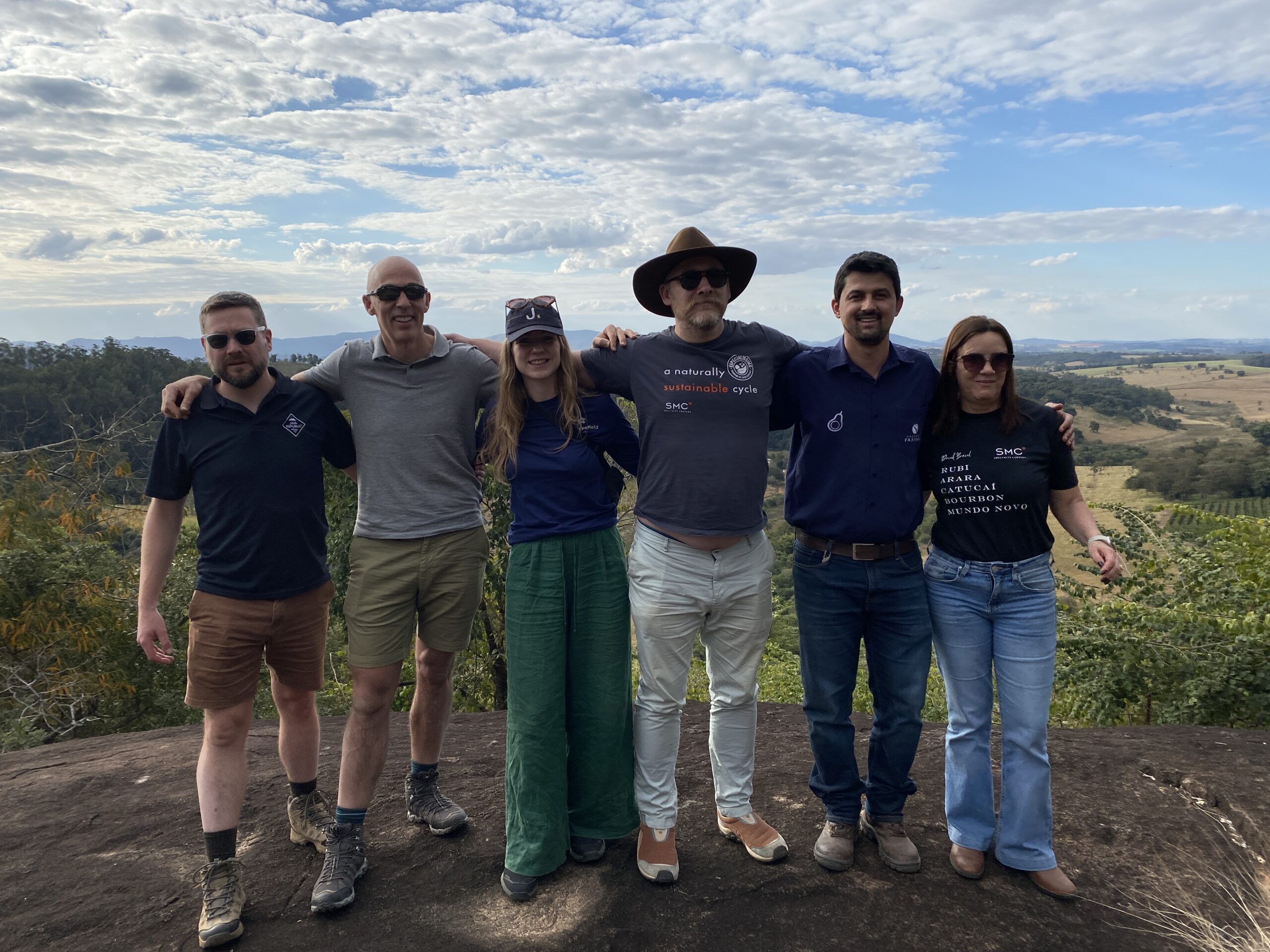
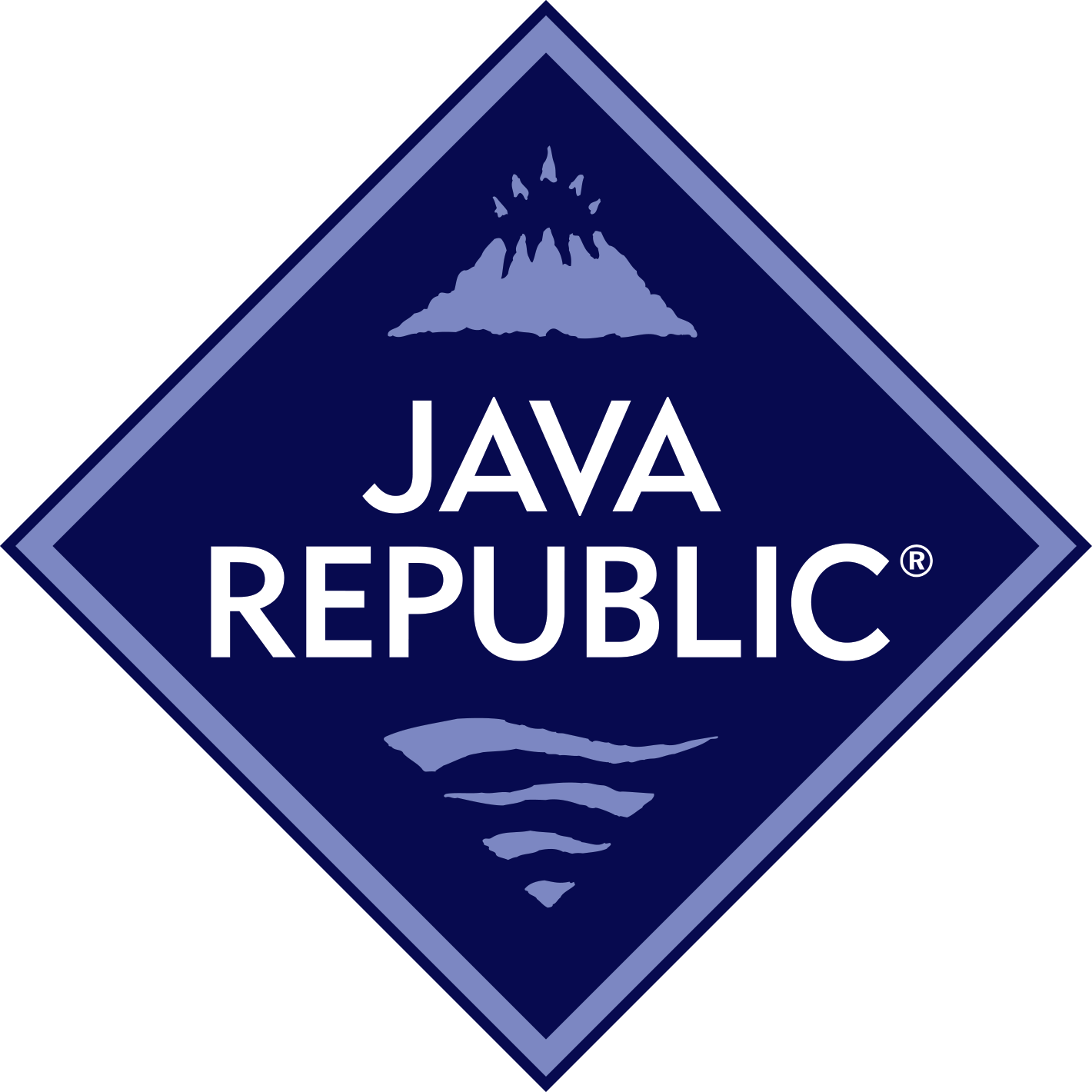



You must be logged in to post a comment.